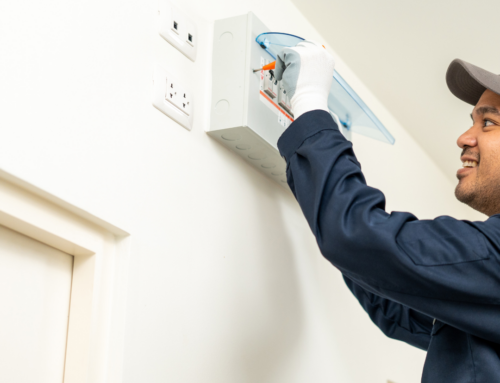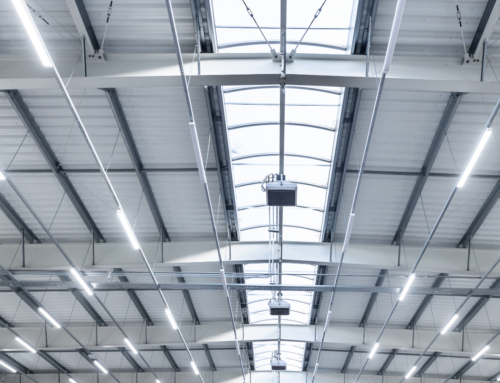When it comes to electrical systems, there are significant differences between residential and commercial work. While both types of electrical systems serve the purpose of powering buildings, the scale, complexity, and requirements vary greatly. Understanding these differences is essential for business owners and property managers who need to make informed decisions about their electrical needs. In this article, we’ll explore the key distinctions between residential and commercial electrical work, with a focus on the role of a commercial electrician.
1. Scale and Complexity of the System
One of the most obvious differences between residential and commercial electrical work is the scale of the electrical systems involved. Residential electrical systems are typically designed to power a single home or small dwelling, with a relatively simple layout that includes lighting, outlets, and appliances. In contrast, commercial electrical systems are designed to handle much larger electrical loads, as they power businesses, offices, factories, and large commercial buildings.
A commercial electrician must be prepared to design and install complex electrical systems that can handle the power requirements of large equipment, lighting systems, HVAC units, and high-powered machinery. This often requires the use of larger circuit breakers, more substantial wiring, and a higher capacity to handle the increased demand. Additionally, commercial systems may include backup power sources, such as generators or uninterruptible power supplies (UPS), to ensure business continuity during power outages.
2. Electrical Codes and Regulations
Electrical work, whether residential or commercial, must comply with local, state, and national electrical codes to ensure safety. However, the codes governing residential and commercial electrical work differ in many aspects due to the size and nature of the buildings.
For example, commercial buildings must adhere to stricter safety standards to accommodate higher loads and prevent hazards, such as electrical fires. These codes often involve additional safety measures, such as proper grounding, emergency lighting, and exit signage. A commercial electrician is well-versed in these specific codes and regulations, ensuring that all installations meet legal requirements and are safe for the building occupants.
In contrast, residential electrical work follows the National Electrical Code (NEC) for homes, which is generally less complex but still requires compliance with safety standards. While safety is a concern in both cases, the standards for commercial buildings are typically much more rigorous, given the scale and usage of the electrical systems.
3. Wiring and Equipment
Commercial electrical systems often require different wiring and equipment compared to residential systems. For instance, the wiring used in commercial buildings is typically much heavier gauge, as it needs to handle higher currents and power loads. While a typical residential home might use 120 or 240-volt circuits, commercial buildings often use 480-volt circuits to power heavy equipment and machinery.
Moreover, commercial electricians must often work with more sophisticated electrical components such as transformers, multi-phase systems, and large switchgear, all of which are less common in residential settings. The electrical panels in commercial buildings are also larger and designed to manage the high-volume electrical demands from various departments or units within the building. This difference in equipment requires a commercial electrician to have specialized training and experience with high-voltage systems and commercial-grade components.
4. Time and Budget Considerations
Because of the complexity and size of commercial electrical systems, commercial electrical work typically takes more time to complete and is more expensive than residential work. The scope of work, the need for specialized equipment, and the complexity of the systems all contribute to longer timelines and higher costs.
For businesses, working with an experienced commercial electrician can help streamline the process, minimise downtime, and ensure that the project stays within budget. Commercial electricians are also skilled at coordinating with other contractors, such as general contractors or HVAC technicians, to complete the entire installation efficiently.
In contrast, residential electrical work is usually simpler and quicker, often involving smaller projects such as lighting installations or rewiring homes. The costs are typically lower as the system is less complex and the required components are less expensive.
5. Ongoing Maintenance and Service
Maintenance for commercial electrical systems tends to be more involved than for residential systems due to the scale of the installation. Businesses must regularly maintain electrical systems to ensure they continue to operate efficiently and safely. This can include routine inspections, load testing, and troubleshooting of more complex electrical components.
For example, a commercial electrician might perform regular checks on circuit breakers, transformers, and backup power systems to prevent issues that could disrupt business operations. These systems are often critical to the daily functioning of the business, and maintaining them ensures minimal downtime.
Residential electrical systems generally require less maintenance, but periodic checks on wiring, outlets, and lighting are still important for safety. However, these checks are typically less frequent and involve simpler tasks.
Conclusion
In summary, while both residential and commercial electrical work share common elements, the differences in scale, complexity and regulatory requirements are significant. A commercial electrician is specially trained to handle the larger, more intricate electrical systems found in commercial buildings. From adhering to stricter electrical codes to installing high-voltage equipment, commercial electricians ensure that your business operates safely and efficiently.
Whether you’re constructing a new commercial building, upgrading an existing electrical system, or maintaining your electrical infrastructure, hiring a qualified commercial electrician is essential for the success and safety of your business.







Leave A Comment